15 Self-hosted Solutions to Build Your Own Social Network Solutions for 2024
Table of Content
Welcome to our comprehensive guide on the top 15 self-hosted social network solutions for the year 2024. As privacy and data control continue to be paramount in the digital age, self-hosted solutions offer an excellent alternative to mainstream platforms.
The apps here discussed prioritize user privacy, data control, and community building. They include social networking and blogging tools that can be hosted on personal servers, catering to needs from private social networking to professional networking and blogging.
1. Mastodon
Mastodon is a free, open-source social network server based on ActivityPub, allowing users to publish various types of content.
It operates as a federated network, enabling seamless communication between users on different servers, including those using non-Mastodon software that implements ActivityPub. It also ensures no vendor lock-in, being fully interoperable with any conforming platform.
Features
- Free, open-source social network server based on ActivityPub
- Federated network allowing seamless communication between users on different servers
- No vendor lock-in: Fully interoperable with any conforming platform
- Real-time, chronological timeline updates via WebSockets
- Allows media attachments like images and short videos
- Videos with no audio track are treated like GIFs; normal videos loop continuously
- Includes safety and moderation tools like private posts, locked accounts, phrase filtering, muting, and blocking
- Reporting and moderation system
- Acts as an OAuth2 provider
- Offers a straightforward REST API
- Supports third-party apps via REST and Streaming APIs, resulting in a rich app ecosystem
2. Open Source-Socialnetwork
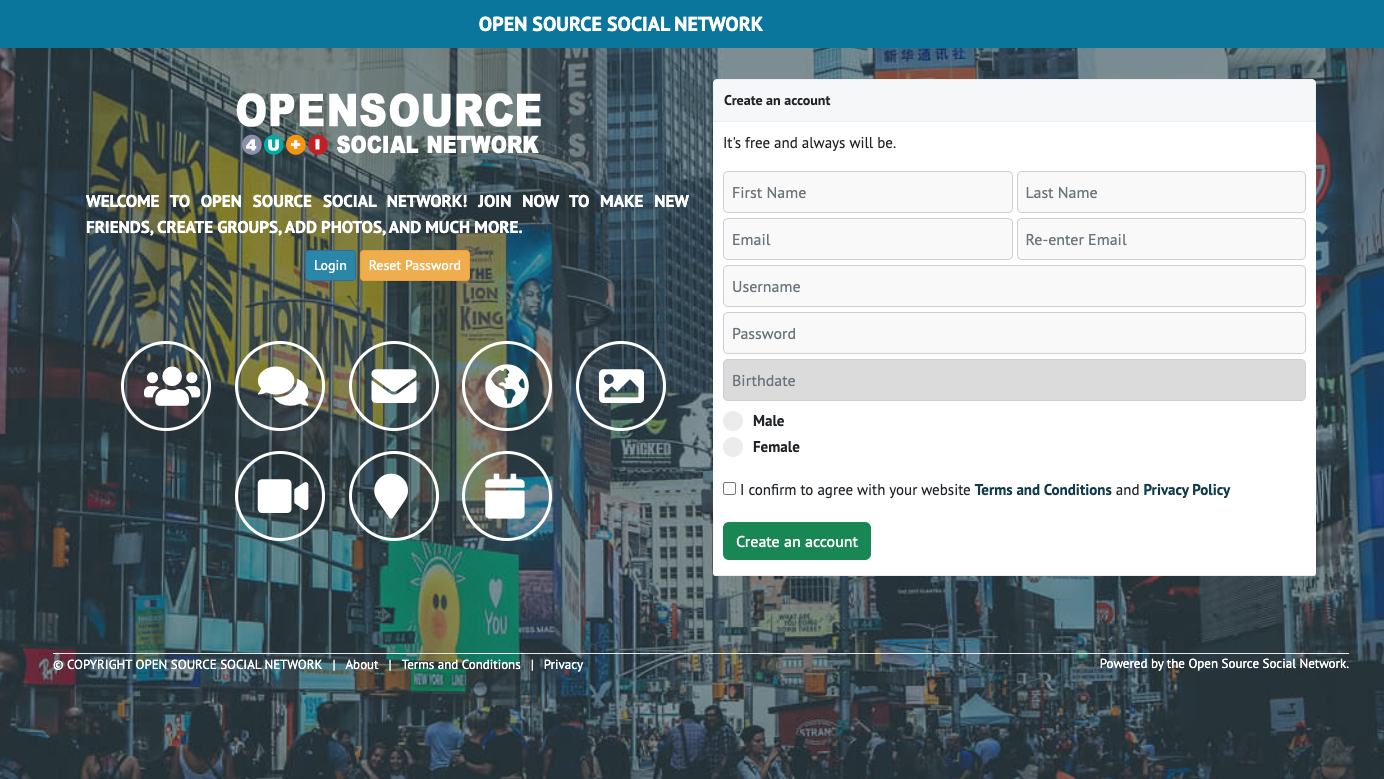
Opensource-Socialnetwork (OSSN) is a PHP-based software that enables the creation of social networking websites, facilitating social relationships among members with similar interests.
It supports 17 languages and is licensed under the Open Source Social Network License (4.0) / Cryptographic Autonomy License version 1.0.
Features
- Admin Dashboard for site overview
- Online users count, gender based graph
- Total site users count (by months) graph
- Component configurations
- Add User
- Remove User
- Edit User
- Ads Manager
- Cache Settings
- Basic Settings
- Unvalidated users
- Custom pages
- Menu Builder
- Themes management
- Components Management
- WebServices API
- Manually validate unvalidated users
- and much more components settings
3. Movim
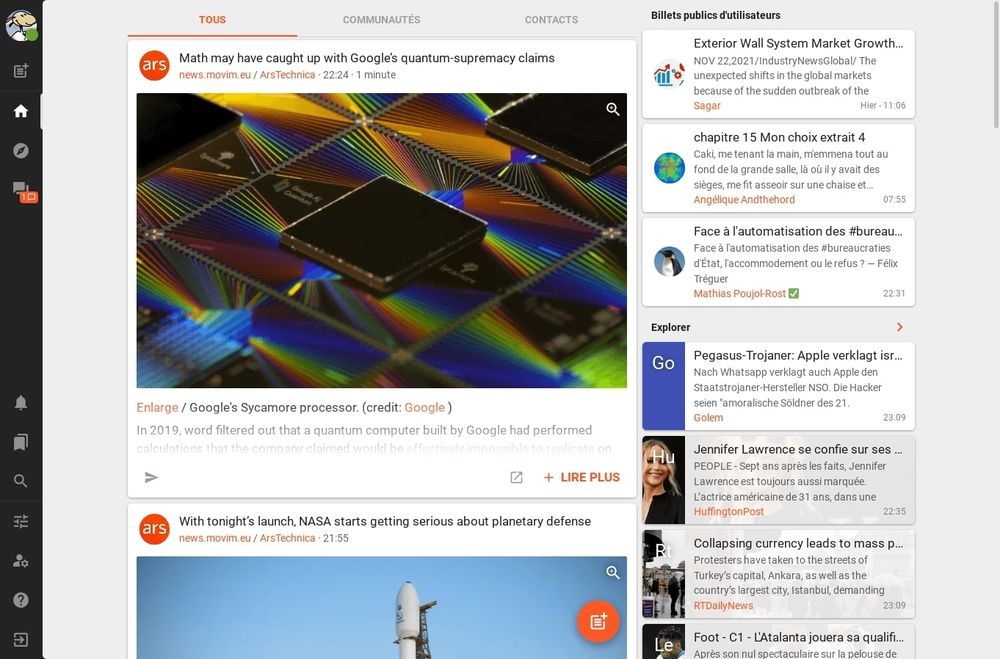
Movim is a federated blogging and chat platform that serves as a web frontend for the XMPP protocol.
Key Features
- Decentralized messaging system
- Automatic embedding of links and images in posts
- Built-in comments with thread comments
- Blogging feature
- Responsive web interface for mobile
- Tagging for posts and comments
- Markdown support
- Creation of multiple chatrooms
- End-to-end encryption using OMEMO
- Ability to attach media in conversations
- Article sharing
- Stickers, GIFs, and emojis
- In-app photography
- and many more.

4. Peergos

Peergos is developing the private web, where users control their own data. It provides secure web apps that can't track users, and allows users to control what personal data each app can see. Peergos is built on a peer-to-peer encrypted global filesystem with fine-grained access control, resistant to surveillance.
It includes a secure messenger, encrypted email client and bridge, and a private social network. The name Peergos is derived from the Greek word for stronghold or tower, symbolizing its commitment to user data control and privacy.
5. Memos
Memos is a free, self-hosted, privacy-first note-taking service with social sharing. It is open-source and allows self-hosting with Docker for full control over data and privacy. It supports pure text with added Markdown, and offers customization and sharing features. It also provides a RESTful API for third-party services integration.
6. HumHub
HumHub is a modular, open-source social networking solution knowledge databases, intranets, and communication platforms.
Features
It features customizable user profiles, spaces for various needs, content creation and sharing, and approximately 80 extendable modules. It also includes advanced permission and notification systems, multi-level comment functions, collaboration options, and content management features.
7. Crabber (Microblogging)
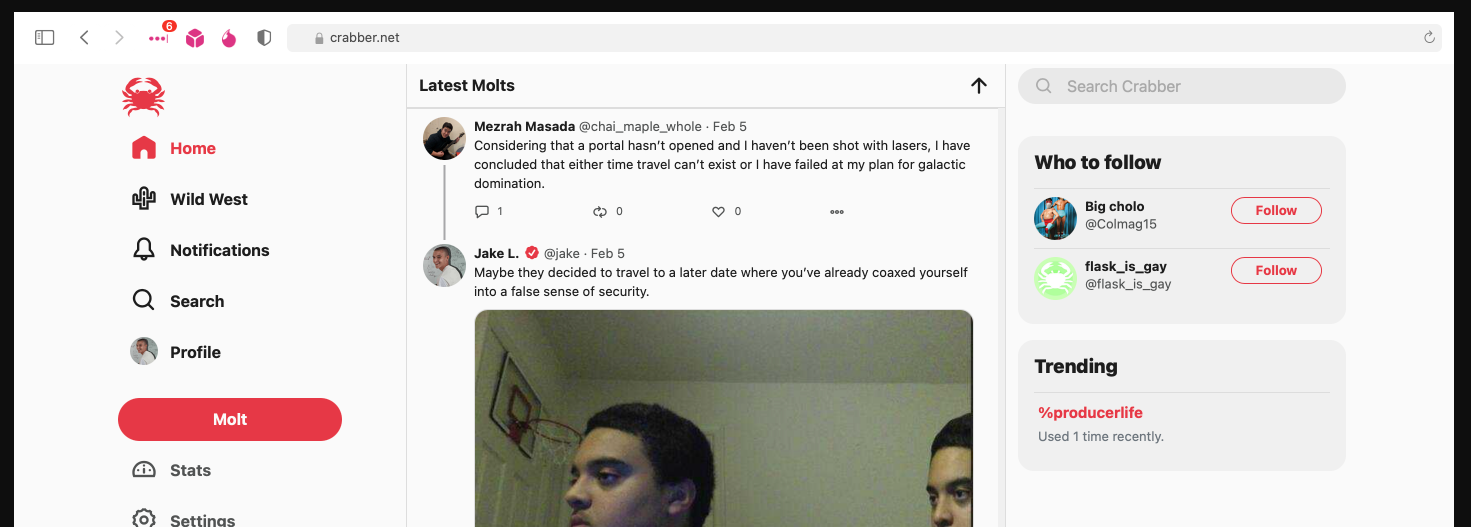
This is a well-designed open-source microblogging Twitter clone.
8. Diaspora
Diaspora* is a distributed, open-source social network that prioritizes user privacy. Unlike mainstream platforms, it is designed to protect user information and provide a secure space for conversations.
As an open-source platform, it encourages community contributions and improvements.

9. PixelFed (Photo Sharing)

PixelFed is a free and ethical photo sharing platform, powered by ActivityPub federation.
10. Patchwork
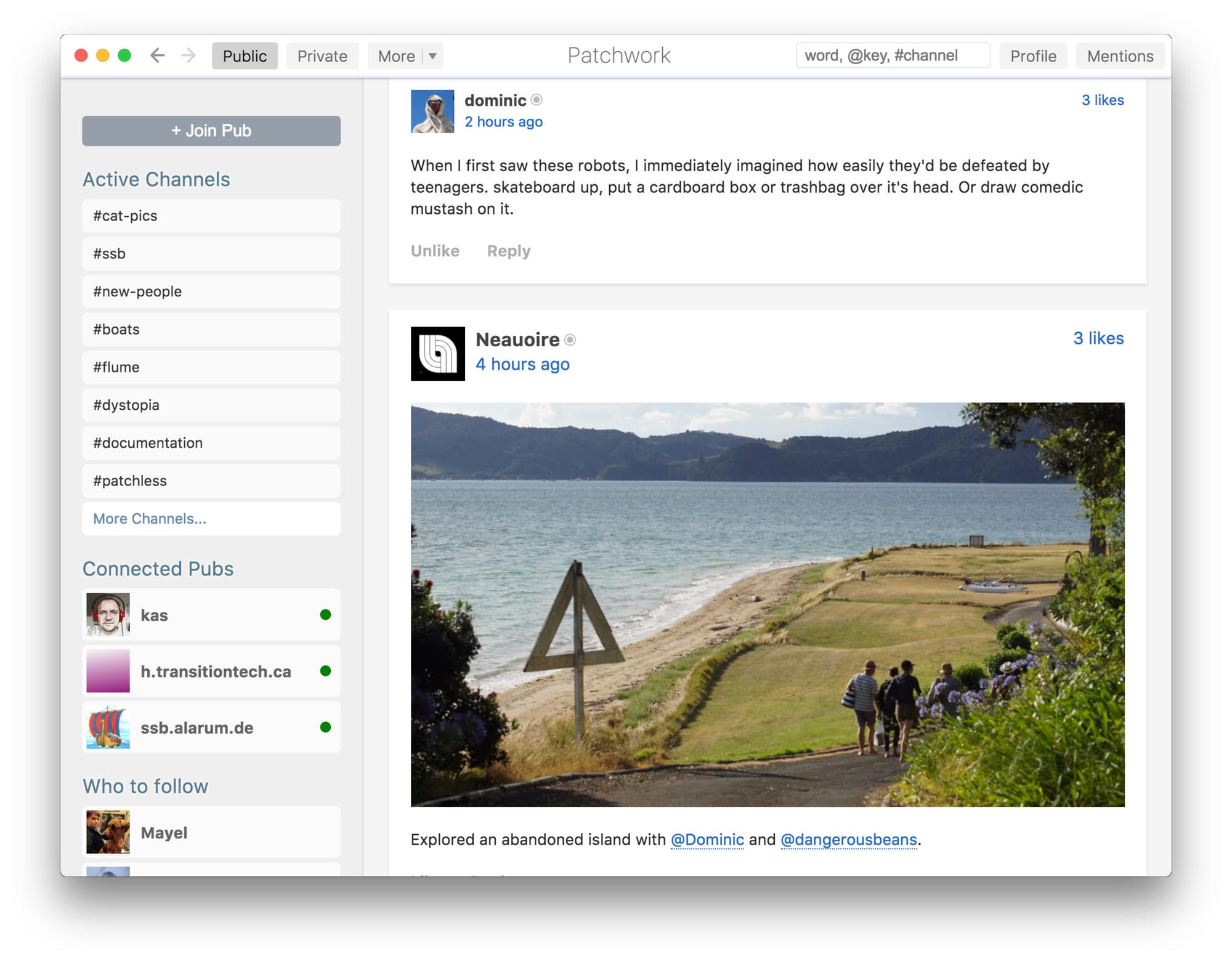
Patchwork is a decentralized messaging and sharing app that allows you to connect with friends without central servers, receive messages only from followed people, use the app online or offline, sync messages on the same Wi-Fi, and send end-to-end encrypted private messages. It is free and open source, allowing for user modifications.
However, Patchwork did not receive any update for years.
11. Friendica
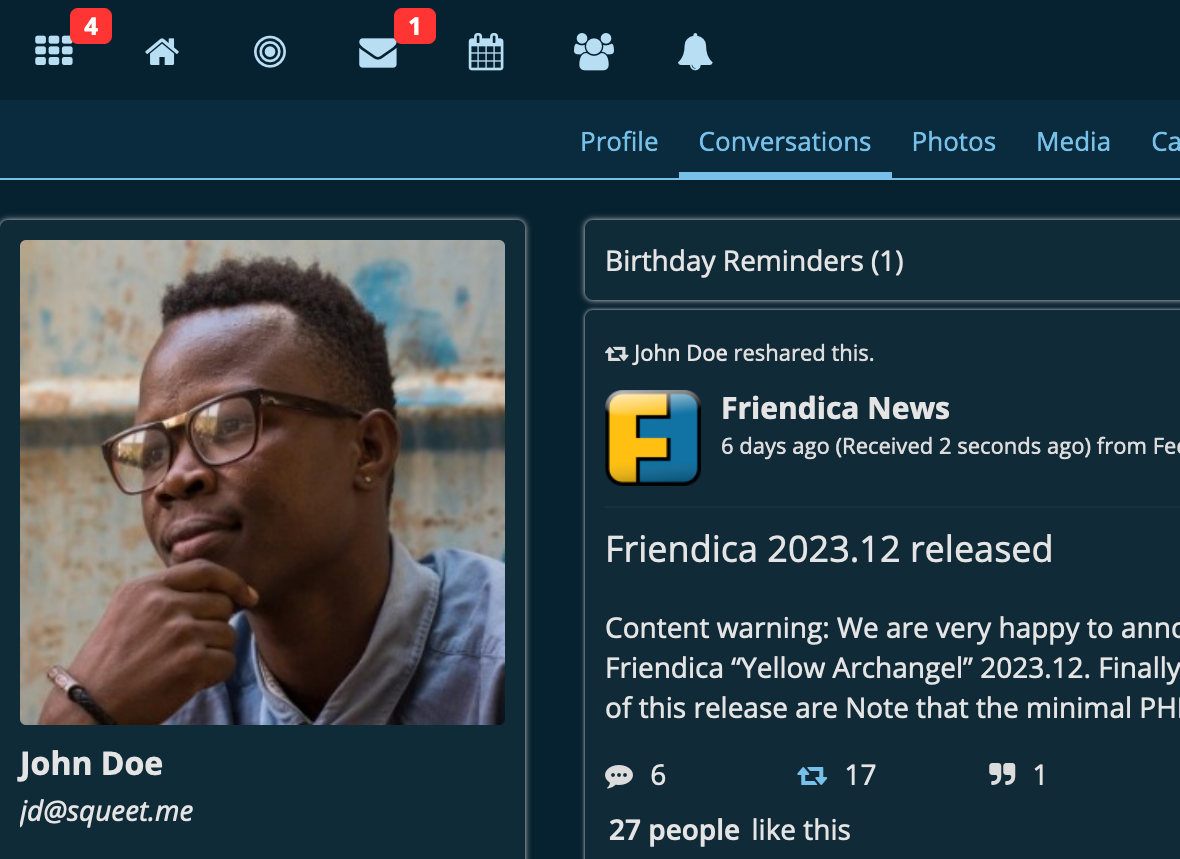
Friendica is a decentralized social communication platform that connects to a federated network of servers known as the Fediverse. It allows interaction with various platforms like Mastodon, Lemmy, Diaspora, and more, and supports content import and mirroring via add-ons. Users can control their content's privacy scope.
12. Pleroma
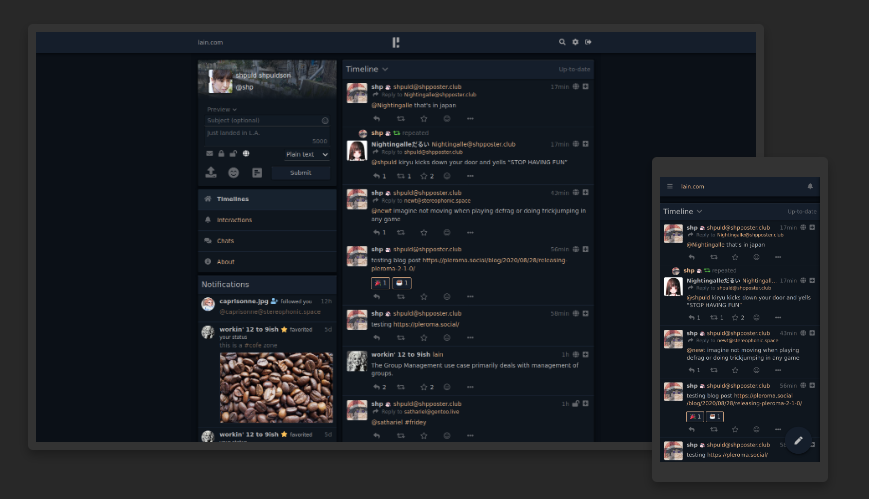
Pleroma is an open-source, federated social networking platform, compatible with Mastodon and other ActivityPub platforms. It is free software allowing individuals to host their own social networking services. It supports hosting on various platforms, including small, inexpensive systems, and a variety of database backends.

13. Haven
Haven is a private, open-source blog application built with Ruby on Rails, designed for sharing with friends and family. It emphasizes privacy and ease of use, with a built-in web interface for managing users, customizing the blog, and writing/editing posts with markdown and live-preview.
Features
- Privacy-first. This is for sharing with friends and family, not commercial endeavors. If you want a blog for your company, you probably want to use WordPress or Ghost instead.
- Easy to use. Built-in web interface for managing users, customizing the blog, and writing/editing posts with markdown and live-preview.
- Low-bandwidth friendly. Images get downscaled to reduce page load times. No javascript frameworks. No ads or trackers.
- Customizable. Add custom CSS or fonts.
- No spam. There is no self-signup for users so there is no place for unauthorized users to impact your life.
- Media support for images, videos, and audio.
- Private RSS feeds for your friends to follow you.
- Build-in RSS reader to follow your favorite blogs.
- Can run on Raspberry Pi
- Install easily using PikaPods, AWS, or using Docker
14. Blabstr
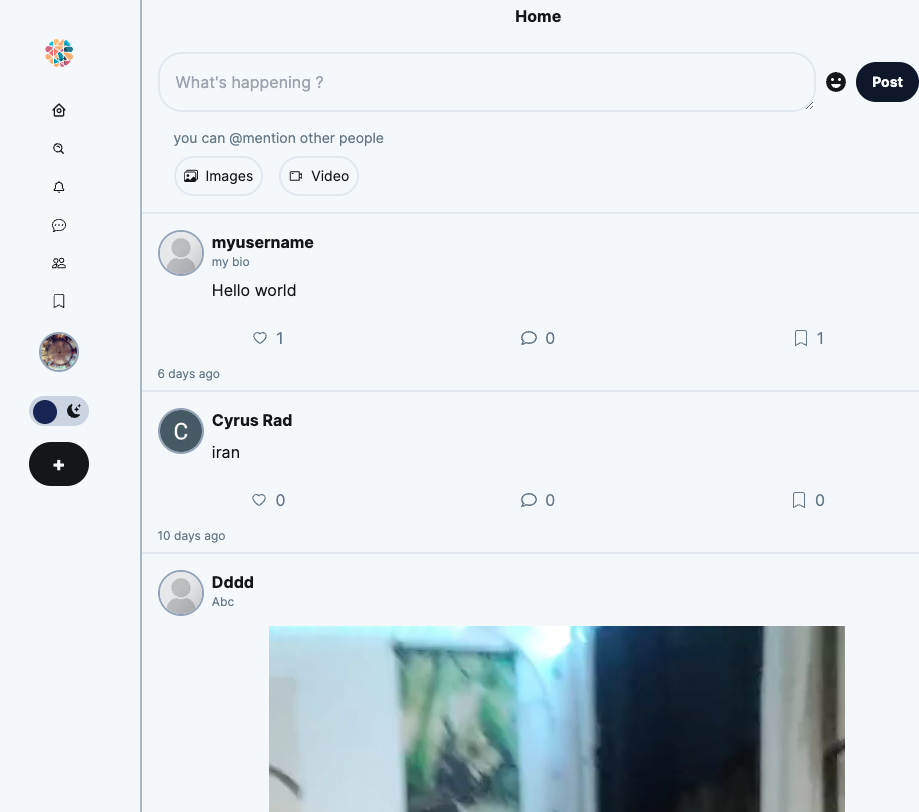
This is a self-hosted open-source social media system that is created using Next.js, React, Tailwind and more.
You can check the demo here.
15. Momento (Photo Sharing)
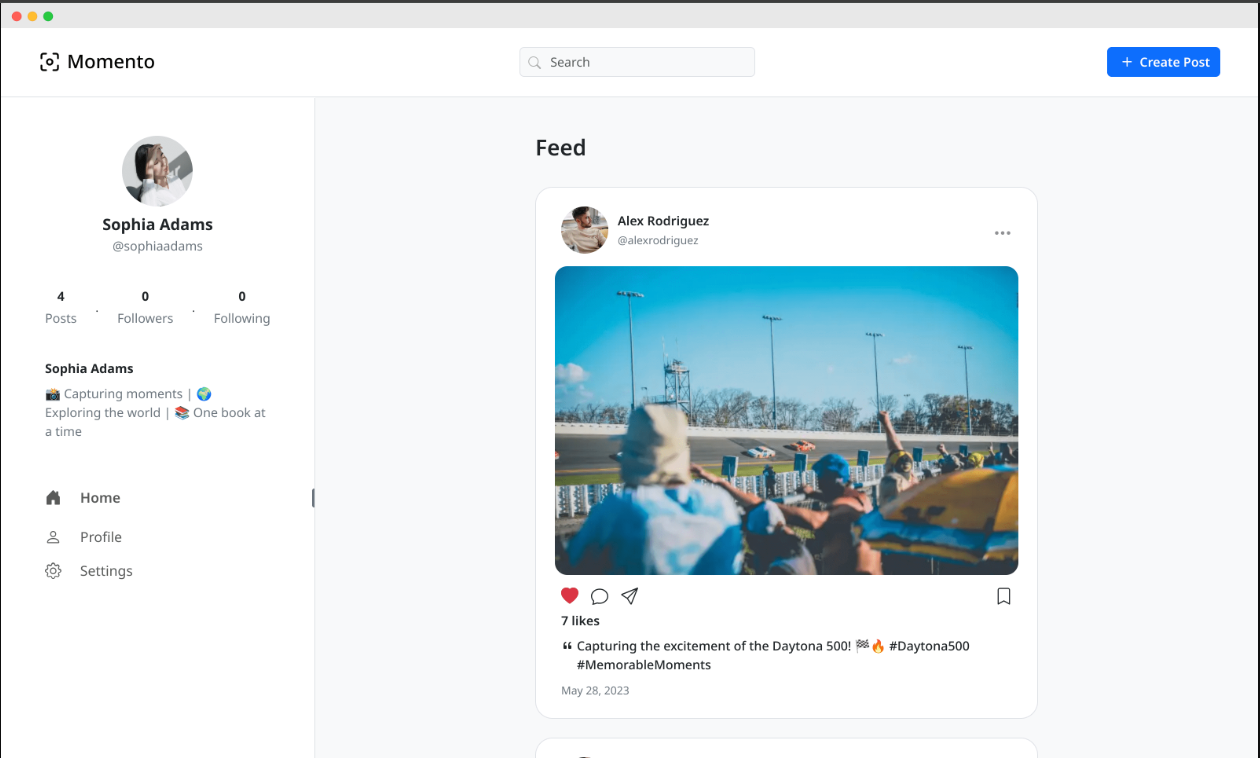
Momento is a simple, full-stack social media platform built with PHP, MySQL, and Bootstrap, demonstrating the implementation of core functionalities within a social media platform.














